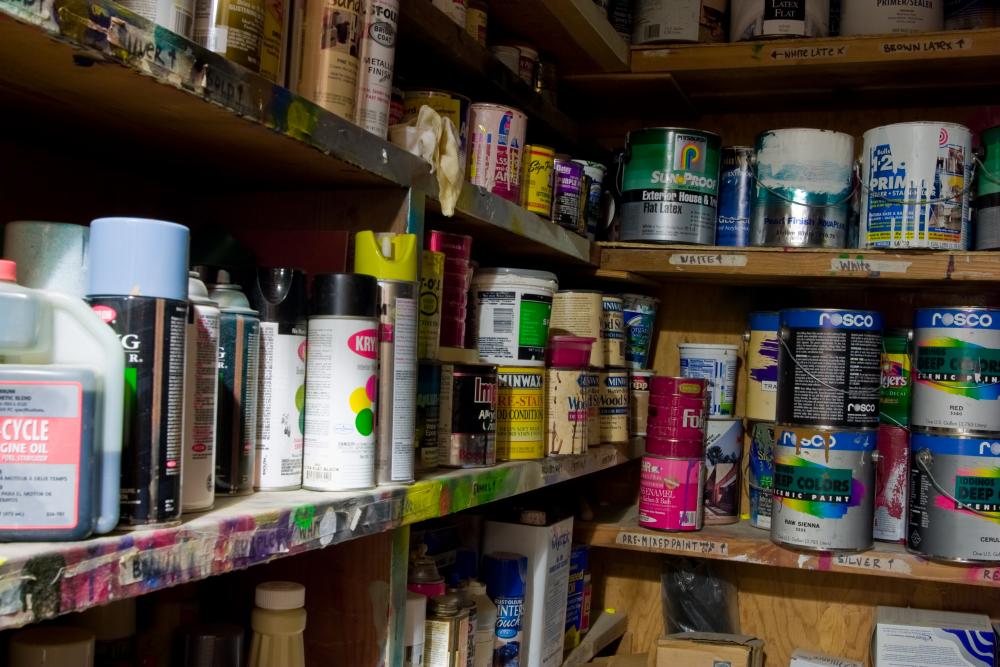How to Reduce Hazardous Waste at Home
RH Business Marketing Solutions
How to Reduce Hazardous Waste at Home
Products that we use daily in our homes can be harmful to both our health and the environment. Direct contact with some of these chemicals can cause irritation of the eyes, skin, throat, or nasal channels. Some of them may even cause headaches and nausea. On the other hand, some household chemicals can impact the natural environment unless properly disposed of as hazardous waste. Dumped into kitchen or bathroom drains, they can pollute water supplies and harm marine ecosystems. Here are some ways of dealing with hazardous waste in your home.
Reduce the use of cleaners
Many drain cleaner formulas contain sulphuric acid, while oven cleaners are known to contain potassium hydroxide. Both chemicals are highly corrosive and cause irritation of eyes and mucoid membranes. Cleaners that contain grease-removing chemicals such as petroleum distillates can damage lungs if inhaled. To reduce your exposure to these chemicals, use products made of natural ingredients whenever possible. For example, a mixture of baking soda can be used for cleaning drains, while lemon and vinegar are great from removing limescale.
Avoid pesticides
Pesticides are formulated to be deadly to insects, rodents, weed, and fungus, but some of them are potent enough to be harmful to other living organisms, such as pets and their owners. Instead of spraying pesticides, try to find alternative ways of pest control, such as using natural grade diatomaceousearth for getting rid of bugs, pulling weeds by hand, or using mulch, and using covers to keep flying insects at bay. Recently, the use of beneficial nematodes, microscopic parasites, has been reported highly successful in garden bug control.
Remove contaminants professionally
Building sites, repurposed lots, and heavily cultivated soil sometimes contain contaminants that seem impossible to remove by their owners. Derelict homes are especially challenging as contaminants, such as asbestos, are often difficult to isolate from demolition debris and recyclable waste. Before you give up on the location, give these experienced demolition contractors a call. With more than 20 years of experience in providing remedial services, they can make your site clean and legally compliant again.
Check the laundry detergents
Many household laundry detergents contain ingredients that have nonylphenol ethoxylates (NPEs) as by-products.These organic compounds are identified as one of the major threats to marine life. NPEs have been discovered to mimic hormone strings and disrupt the endocrine system in sea organism. They don’t decompose naturally, and in reaction with sewage bacteria, become even more toxic. Fortunately, companies such as Cintas and P&G offer many NPE-free detergent brands.
Be careful with motor oil
Almost all car fluids, from antifreeze and AC coolant fluid to motor oil and petrol, can be extremely dangerous if disposed of irresponsibly. Motor oil and antifreeze contain heavy metals such as lead and cadmium that can be potentially very hazardous, contaminating water supplies and poisoning aquatic organisms. Instead of contributing to the pollution, contact your local environmental agency or sanitation department and inquire about available disposal and recycling procedures for automotive liquids.
Recycle power-saving bulbs
Although LED bulbs have become a standard for energy-efficient lighting, there are still many compact fluorescent lights (CFLs) being sold and installed. Although the amounts of mercury used in those bulbs have been reduced due to more stringent laws, more than 670 million mercury-vapour light bulbs are thrown out only in the US every year. Most of them end up in a landfill or being incinerated, despite environmental expert’s warnings that recycling is the only sustainable way of disposing of mercury products.
Our homes often contain corrosive, flammable, chemically unstable, or toxic chemicals. Found in cleaning products, automotive fluids, and even the light bulbs, these materials shouldn't be disposed of with regular waste. Apart from recycling and using local safe disposal programmes, the only way to limit exposure and adverse environmental impact of those chemicals is to reduce their use to a minimum.
Guest Contributors, Lillian Connors

